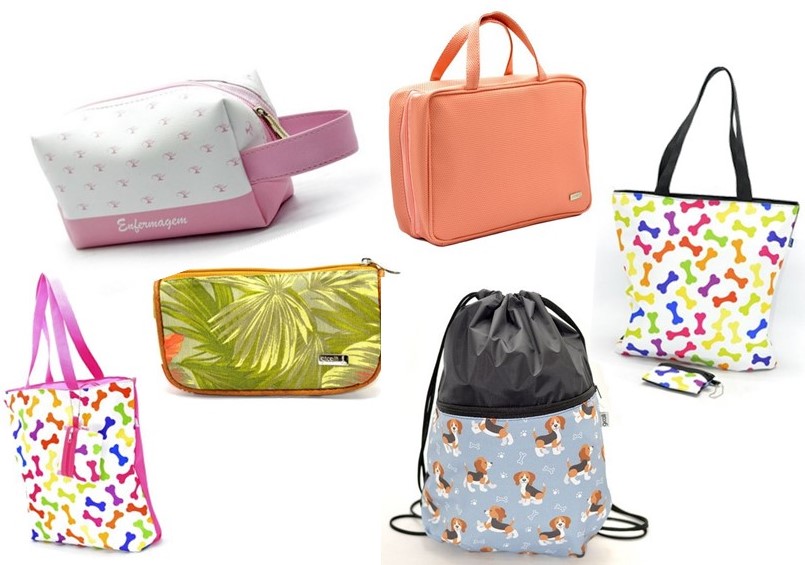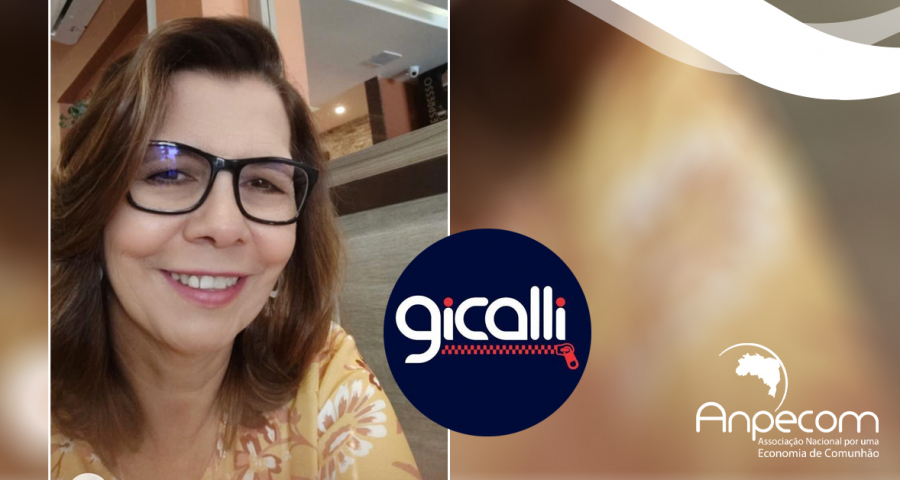On the market for 18 years, with a bankruptcy and several re-inventions of the company behind her, Jussara Gomes immediately understood that the pandemic was driving her to new initiatives to keep her company Gicalli, in Rio de Janeiro, alive.
published in Anpecom on 03/04/2020
Gicalli is a company that produces bags, backpacks, nécessaires, suitcases and personalized gifts.
Jussara Gomes, the owner of the company, immediately understood that the coronavirus crisis was driving her to a sudden reaction and new actions to keep up Gicalli, the company which operates in the countryside of Rio de Janeiro, in the city of Bom Jesus do Itabapoana.
 Her action was motivated mainly by a will: the will to help others. At the beginning of the pandemic, the entrepreneur removed all older and vulnerable employees, but felt the need to do something more for the city. Gomes noticed that the police, religious and other civil servants were working without masks. So she called together four employees and asked them to produce masks to donate, telling them, ‘We can make a difference here.’.
Her action was motivated mainly by a will: the will to help others. At the beginning of the pandemic, the entrepreneur removed all older and vulnerable employees, but felt the need to do something more for the city. Gomes noticed that the police, religious and other civil servants were working without masks. So she called together four employees and asked them to produce masks to donate, telling them, ‘We can make a difference here.’.
Production started immediately and the gift of the masks was very welcome. And to the entrepreneur’s surprise, this gesture aroused considerable interest in the city. Several chains of pharmacies began to order the product. In a first shipment more than 20,000 masks were sold. ‘In the next few days, we should be reaching 50,000,’ Jussara said at the beginning of April. And she went on: "My e-commerce wasn't very active, but in the face of the crisis we decided to promote the masks, and sold another 6,000 at once.’
Thinking about the neighbour
Gicalli is an Economy of Communion company: for the entrepreneur this means first of all thinking about their neighbour, whether he or she is a client, a supplier or an employee. The way of life in the company is guided by the EoC culture. Every day, for example, before entering the factory, the 16 employees gather for an ecumenical moment of prayer and reflection on the Gospel. The company also maintains a network of 25 women service providers who live in the rural area of Bom Jesus and work from their homes.
 ‘We have many women who live in the countryside and have no other source of income than that of their husband. So, I proposed them to be able to provide a service to the company: we send the material and they sew and produce bags and gifts for our company’.
‘We have many women who live in the countryside and have no other source of income than that of their husband. So, I proposed them to be able to provide a service to the company: we send the material and they sew and produce bags and gifts for our company’.
Now, in the face of the crisis, Gomes is trying to keep her employees' self-esteem high. To those staying at home, Gomes sends daily messages of encouragement and comfort via mobile phone. With those who continue to work in the factory, she shares her good energy and lively faith. ‘Dear All, today I woke up very happy. I have only today to live, tomorrow belongs to God,’ she told the employees one day.
But times are not easy for the company. Six years ago, Gicalli went bankrupt; the same year when Gomes had finally managed to balance the company's accounts and launch its own brand. But without denying herself, she says she renegotiated with suppliers, and she always adds her faith to business.
A few months ago, the entrepreneur took part in an Economy of Communion webinar where she met an experienced entrepreneur from her region and the two were able to exchange business experiences and help each other out. And so, Gicalli continues to be reinvented.








